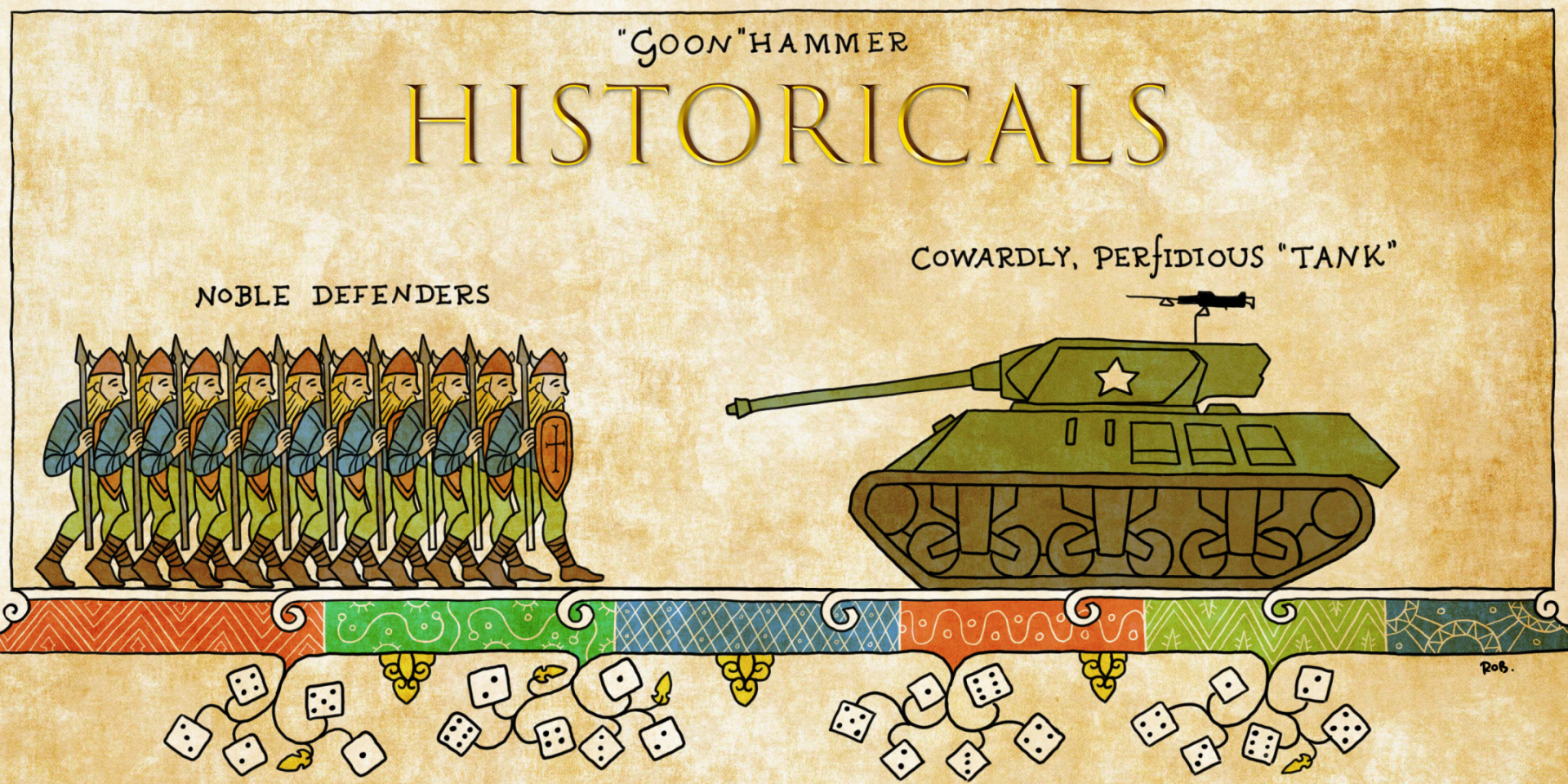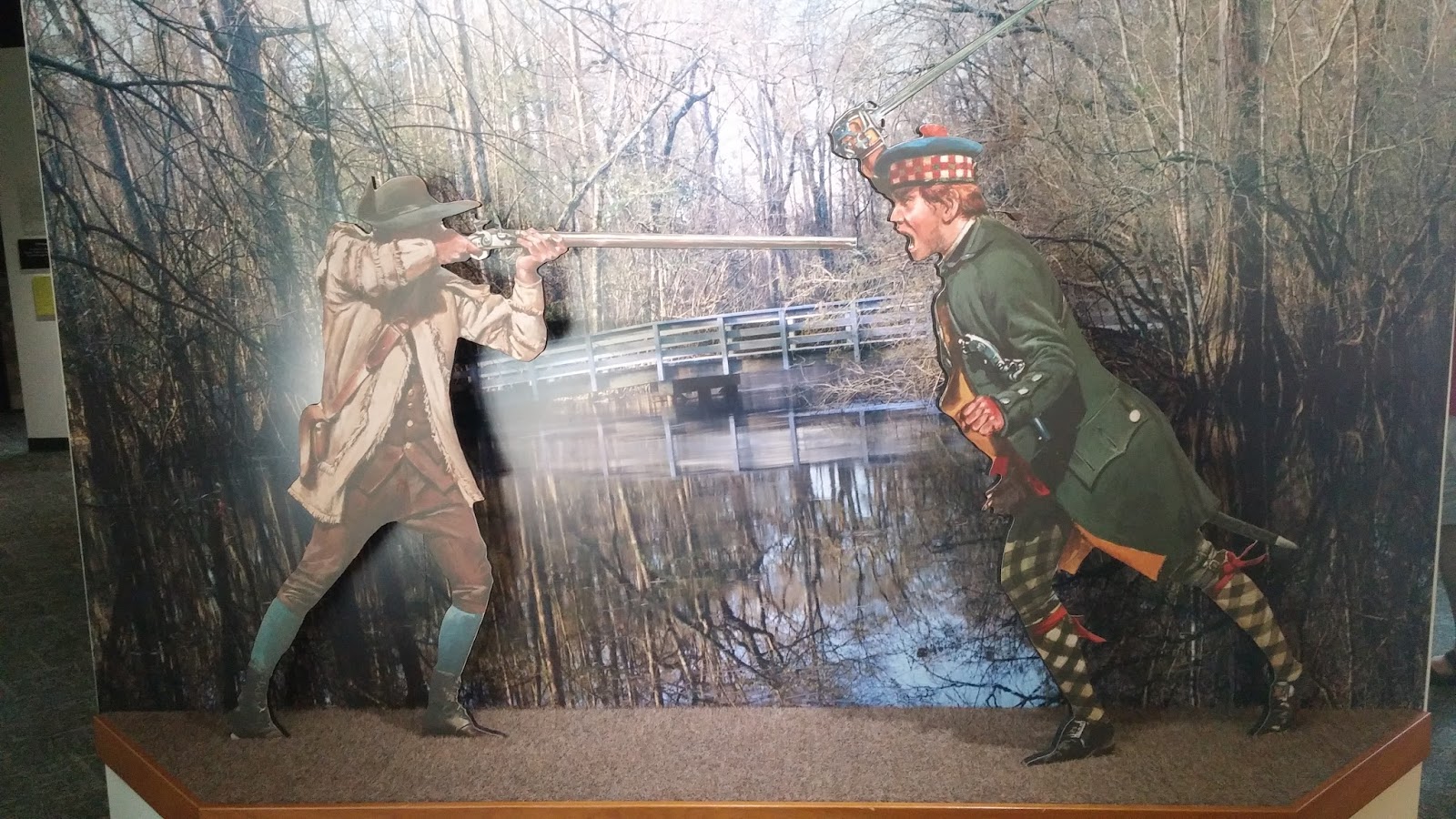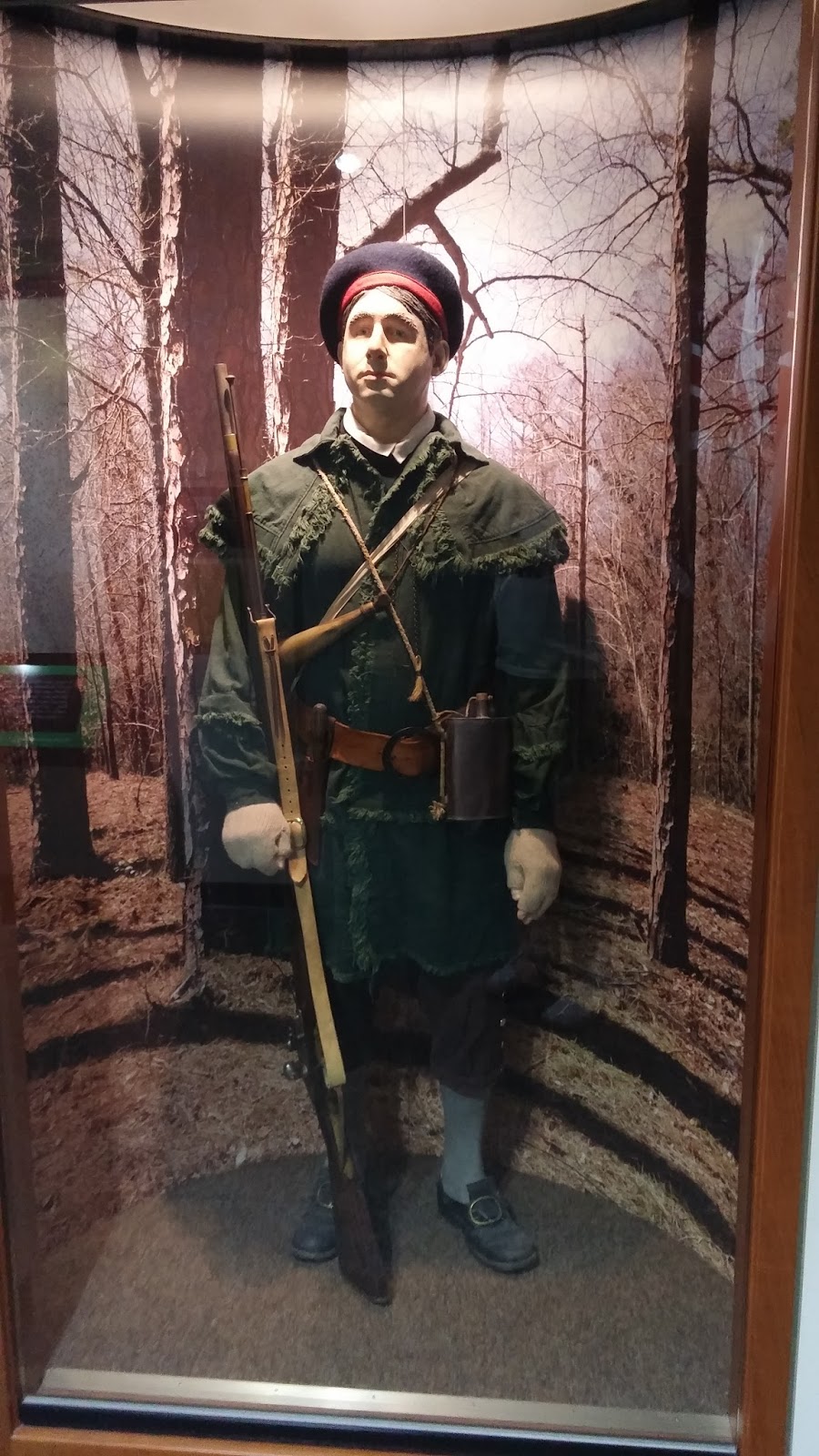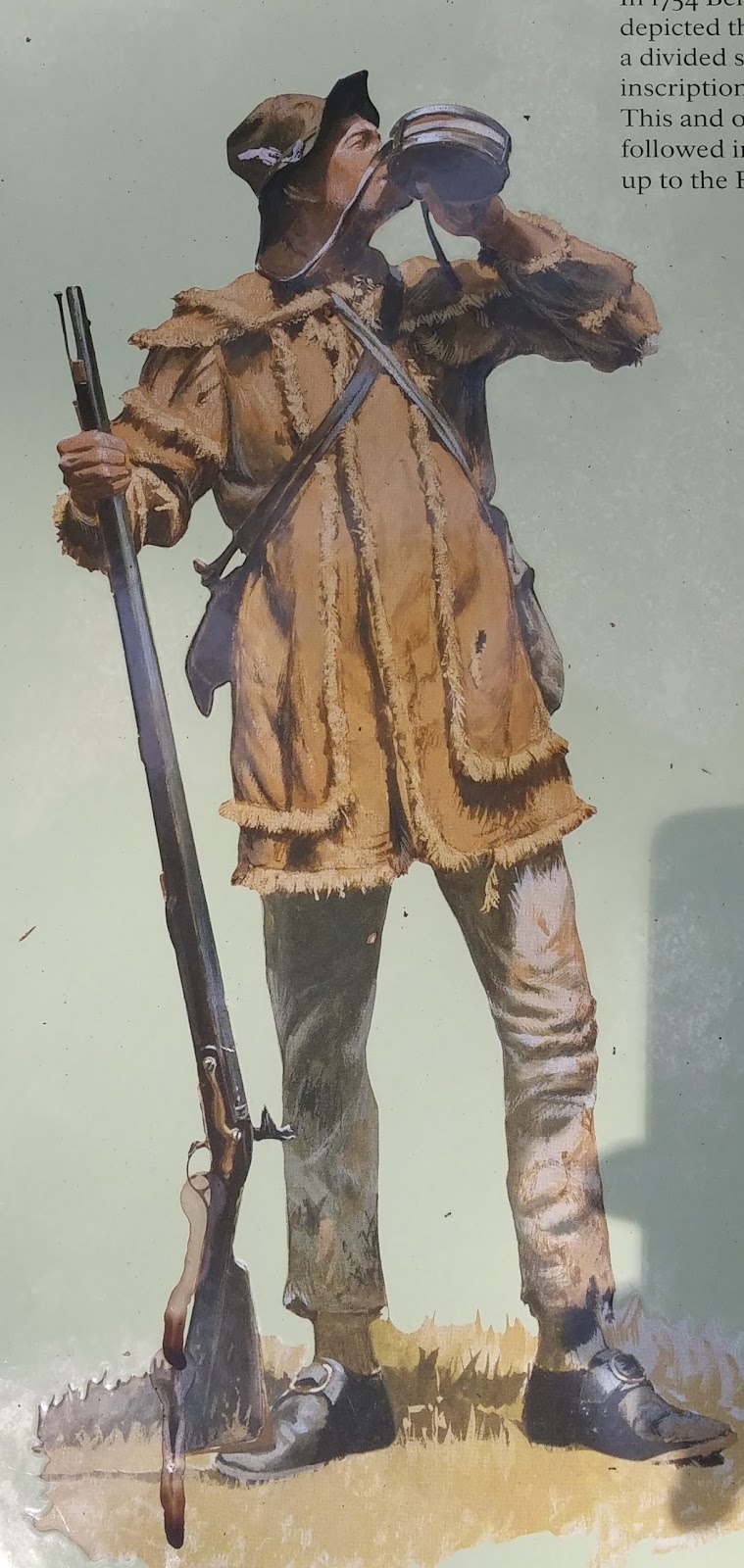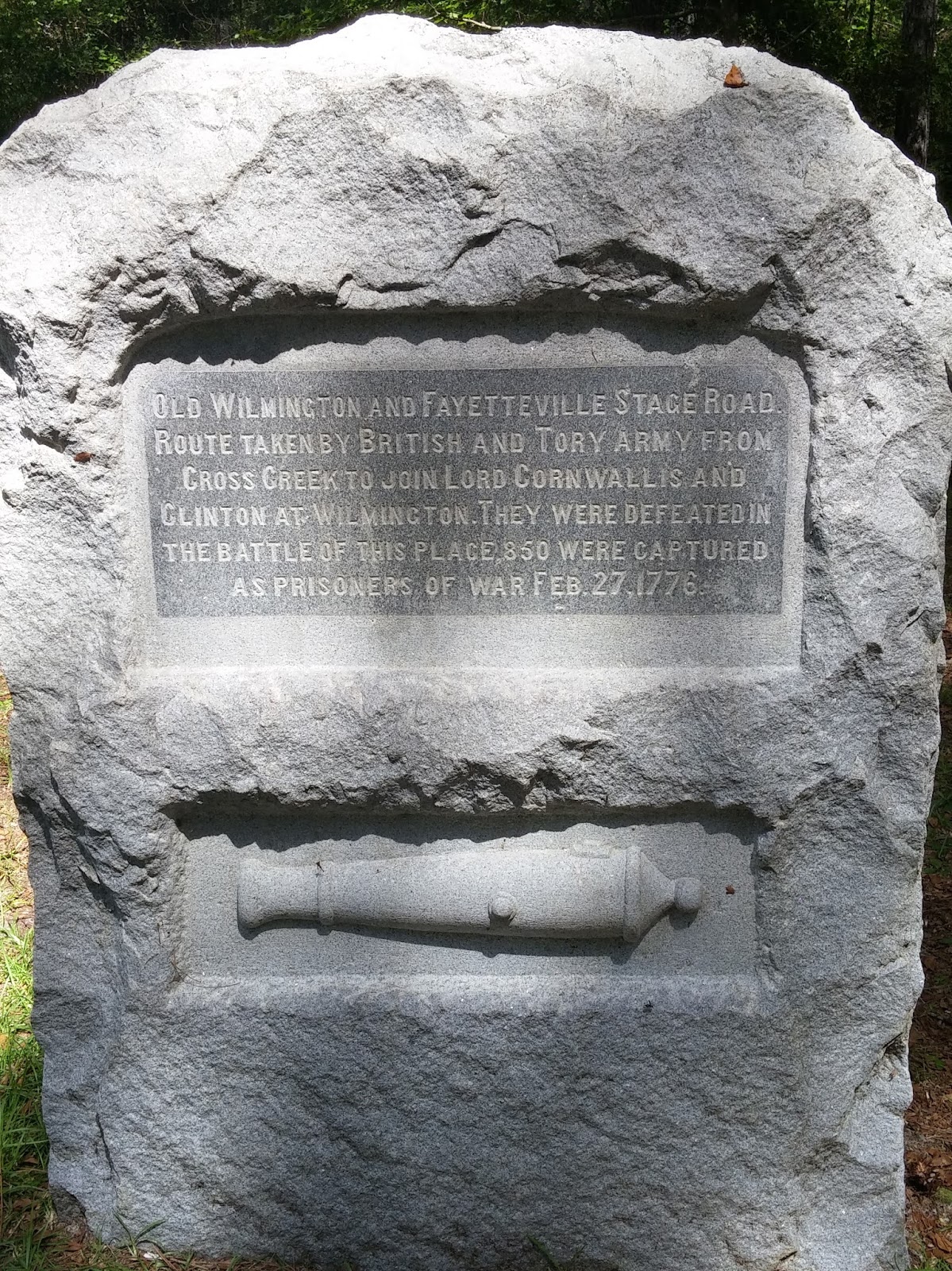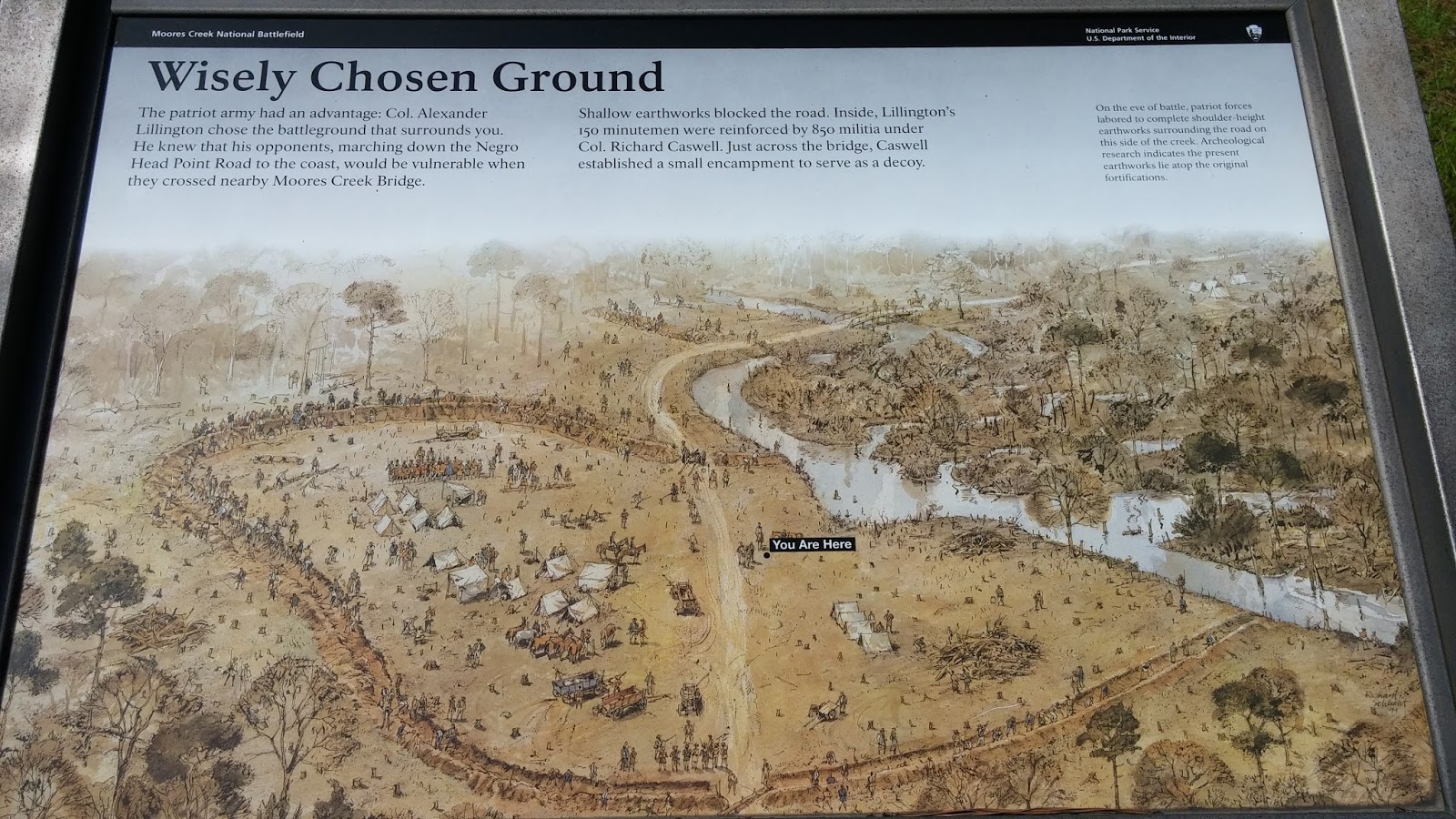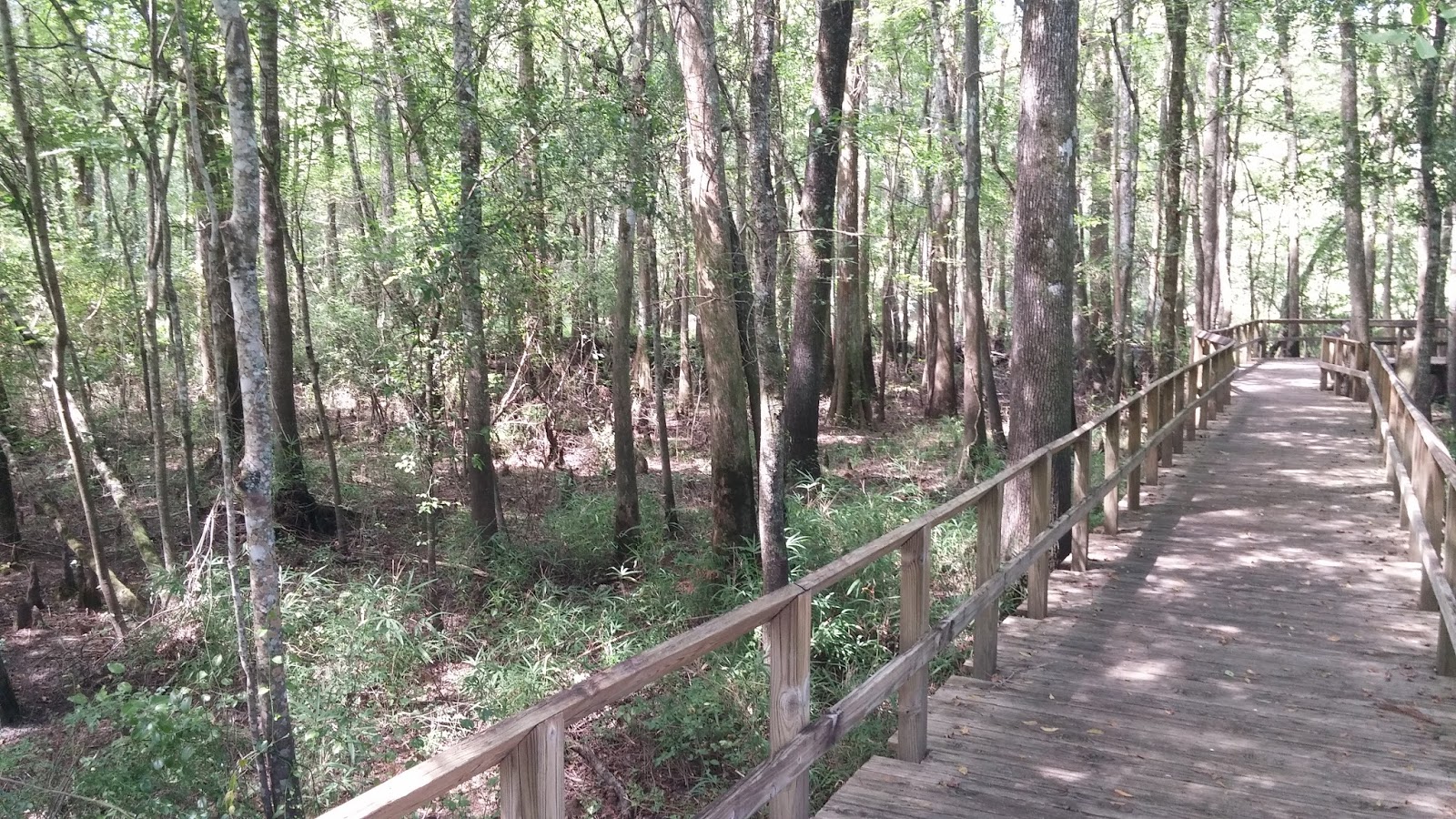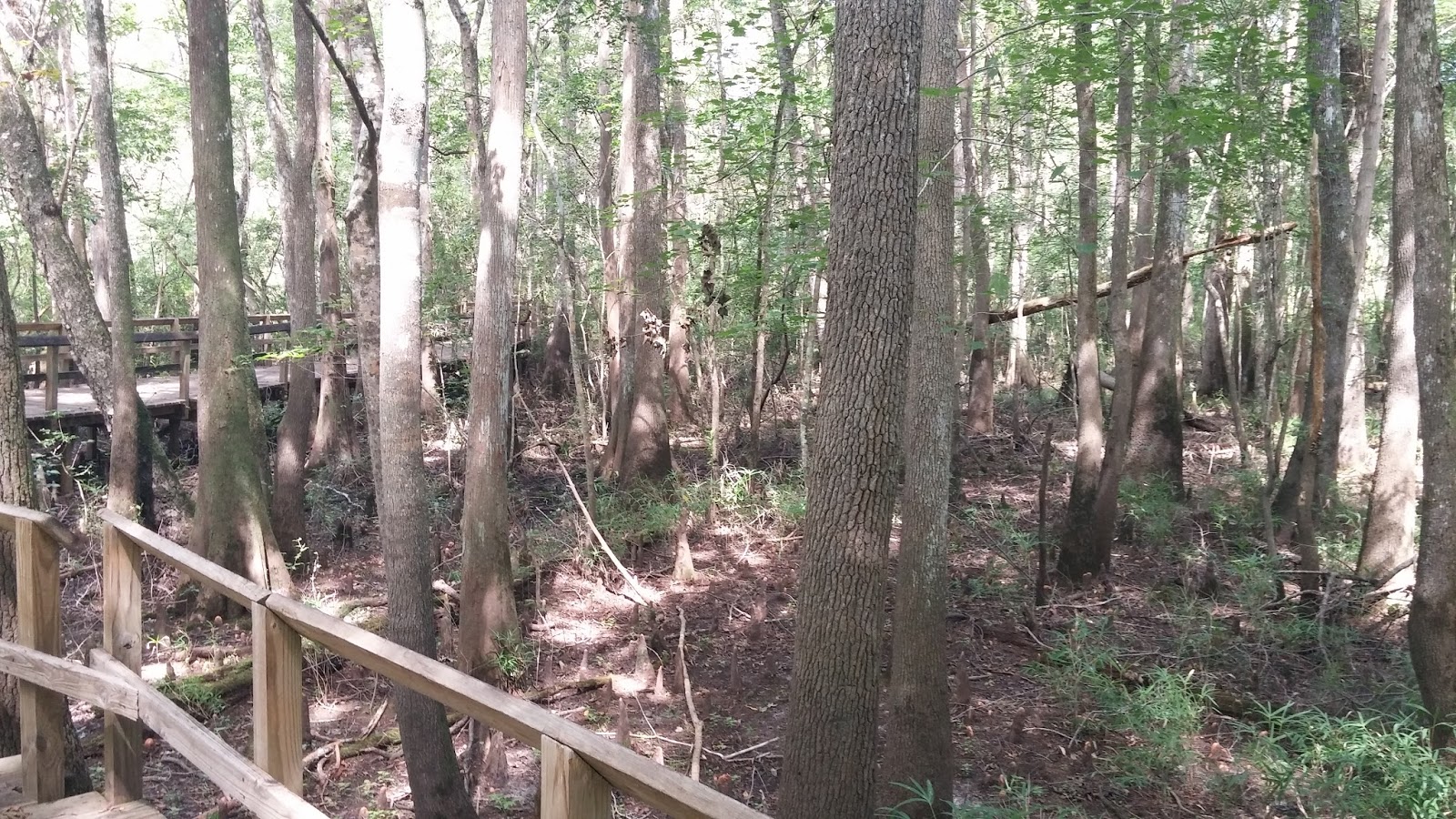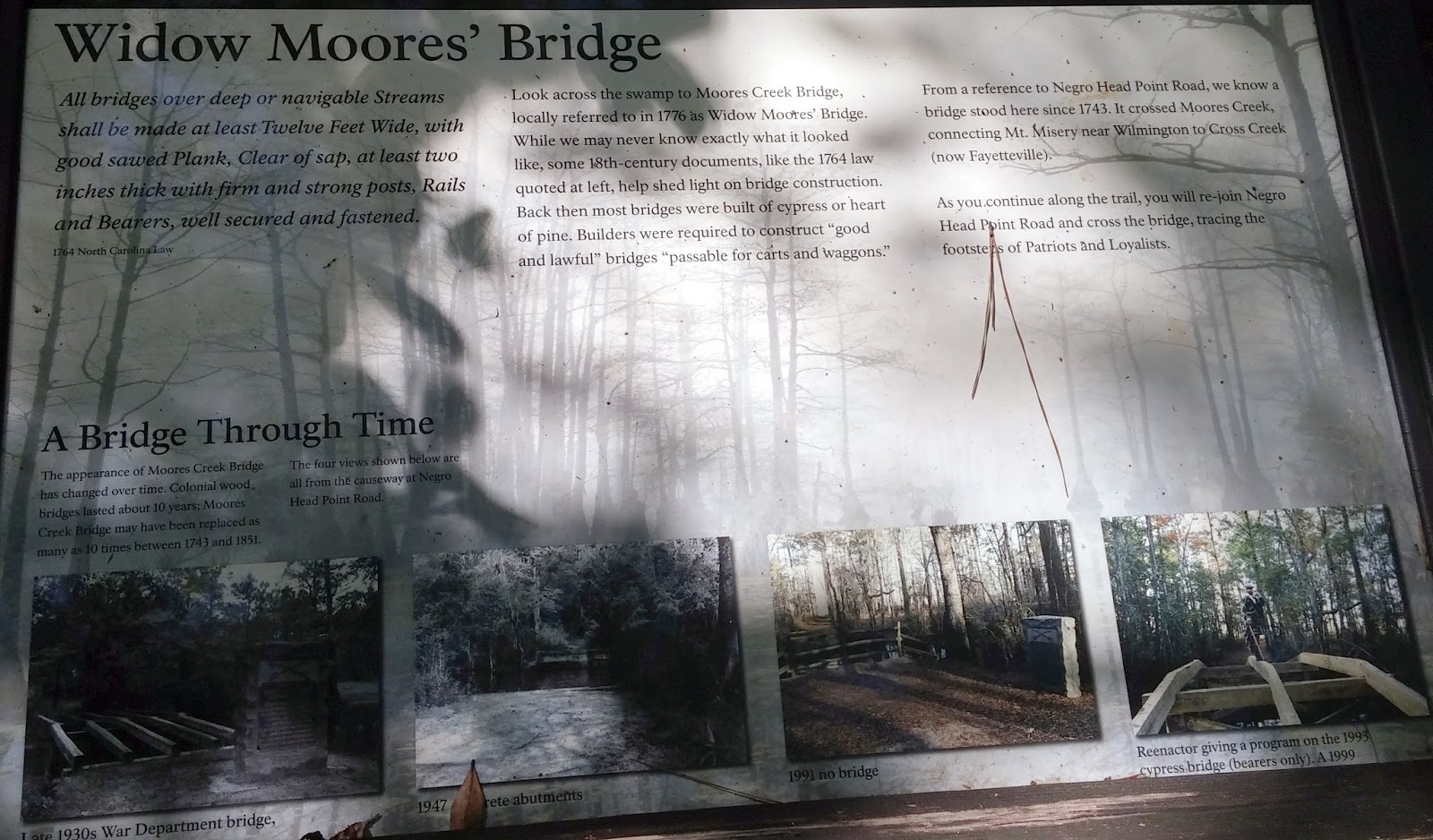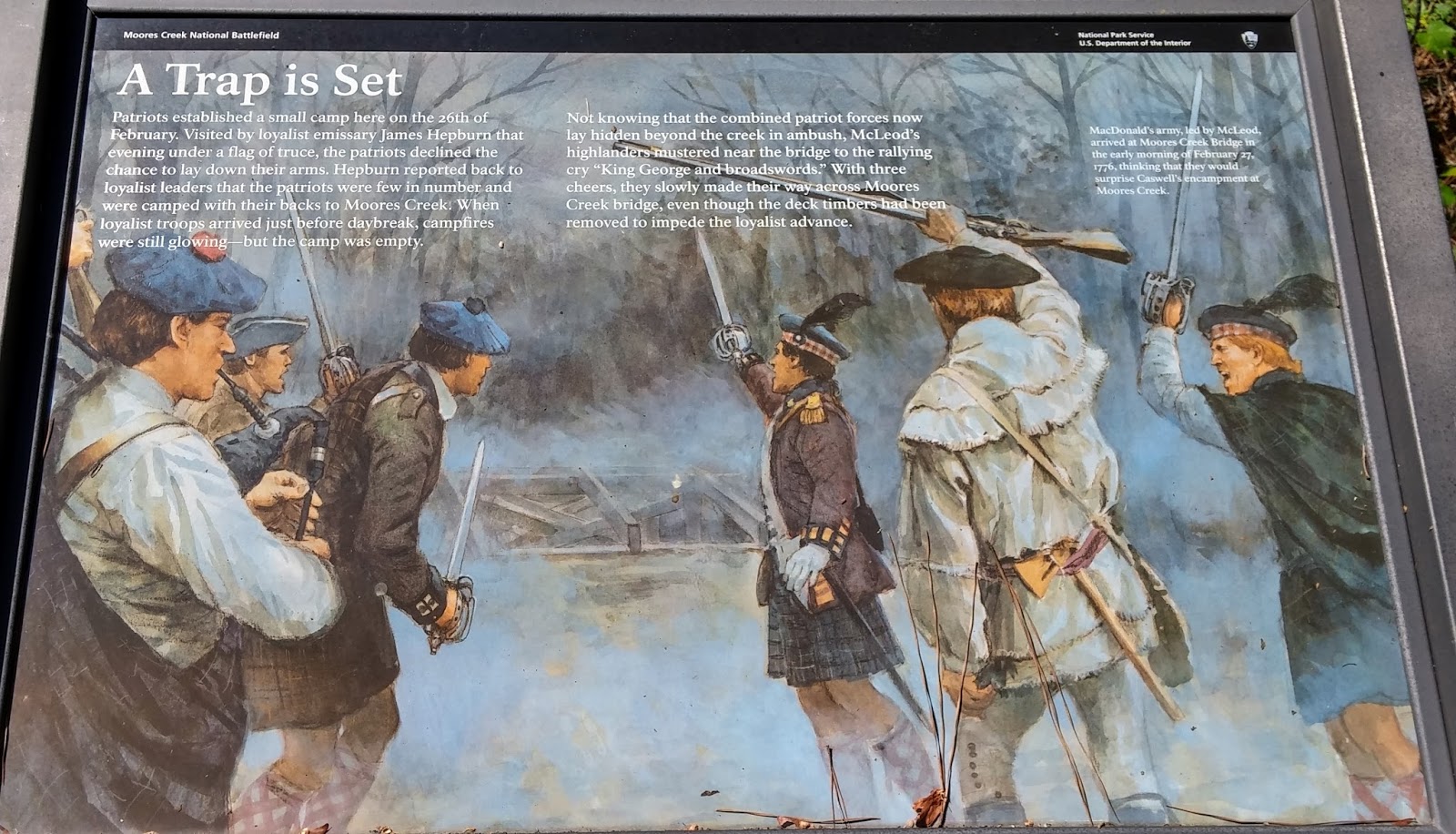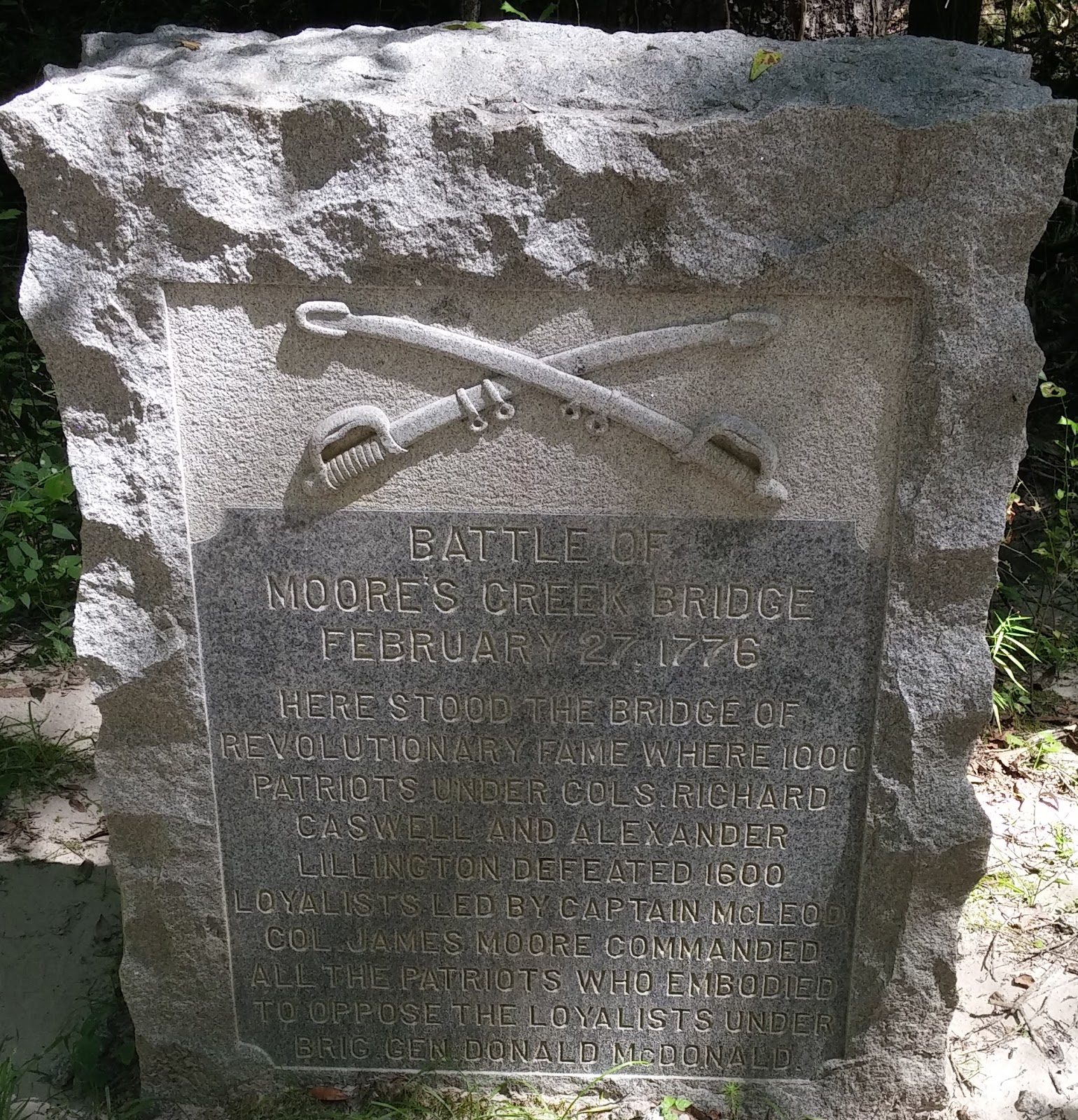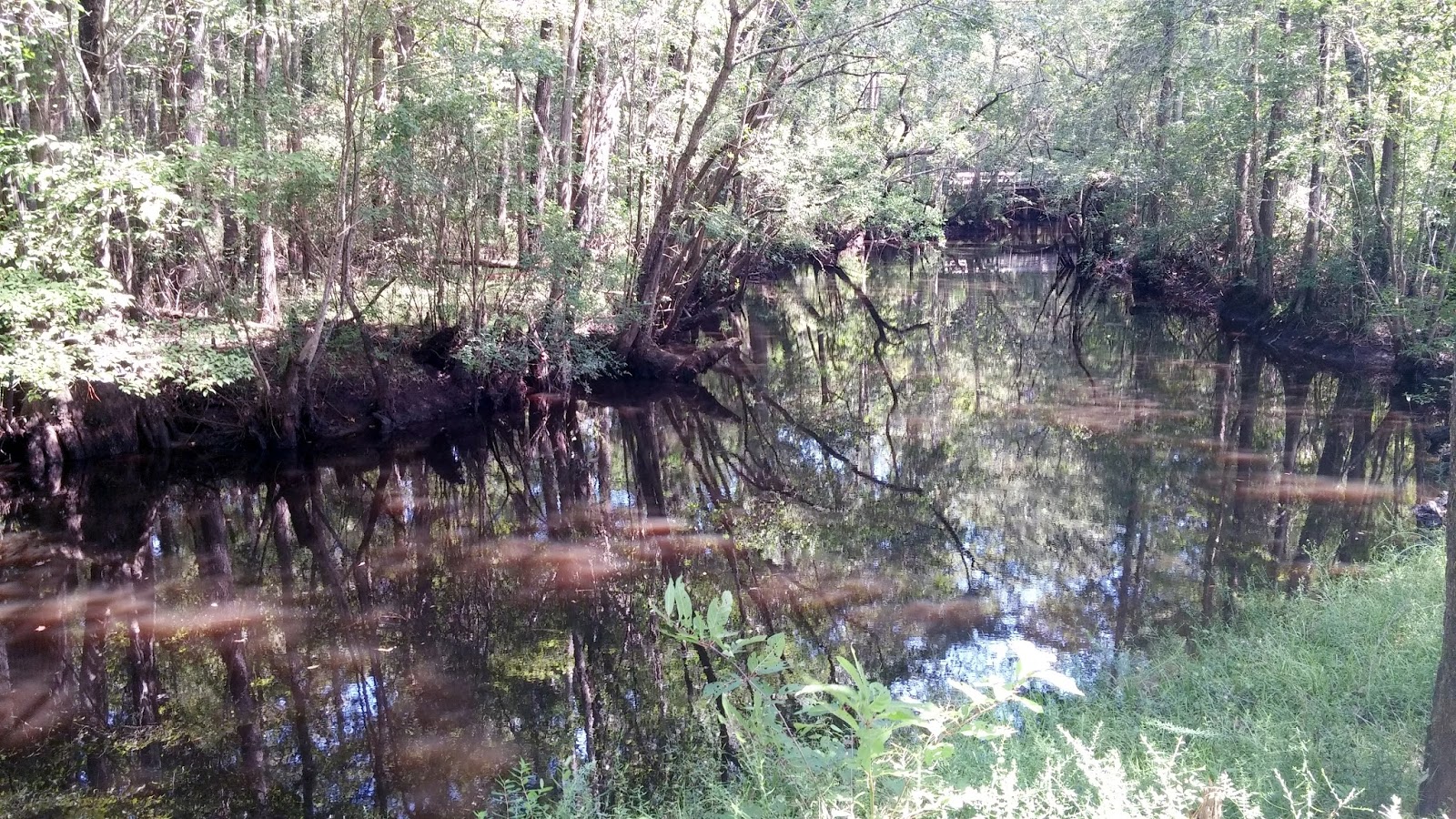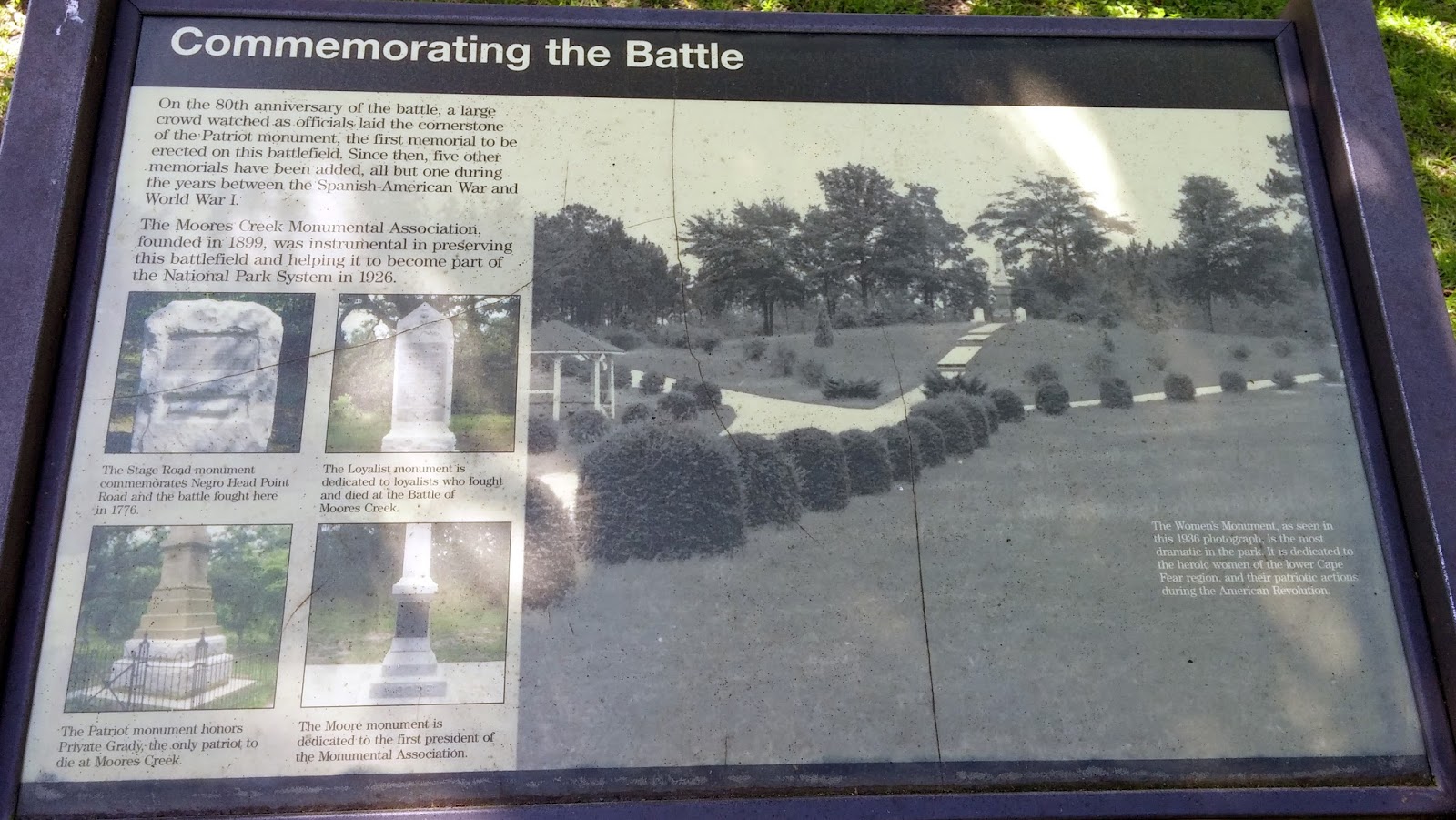
A few years ago I went on a short vacation to visit my parents in North Carolina on the coast. At the time I had a four year old and a 1 year old so I wanted to get them out of the house and do a lot of different things. I googled for museums and battlefields and found Moore’s Creek in Currie, North Carolina, northwest of Wilmington and an hour from my parents’ house. I have been going to that area for decades and never even knew about it. I had to check it out!
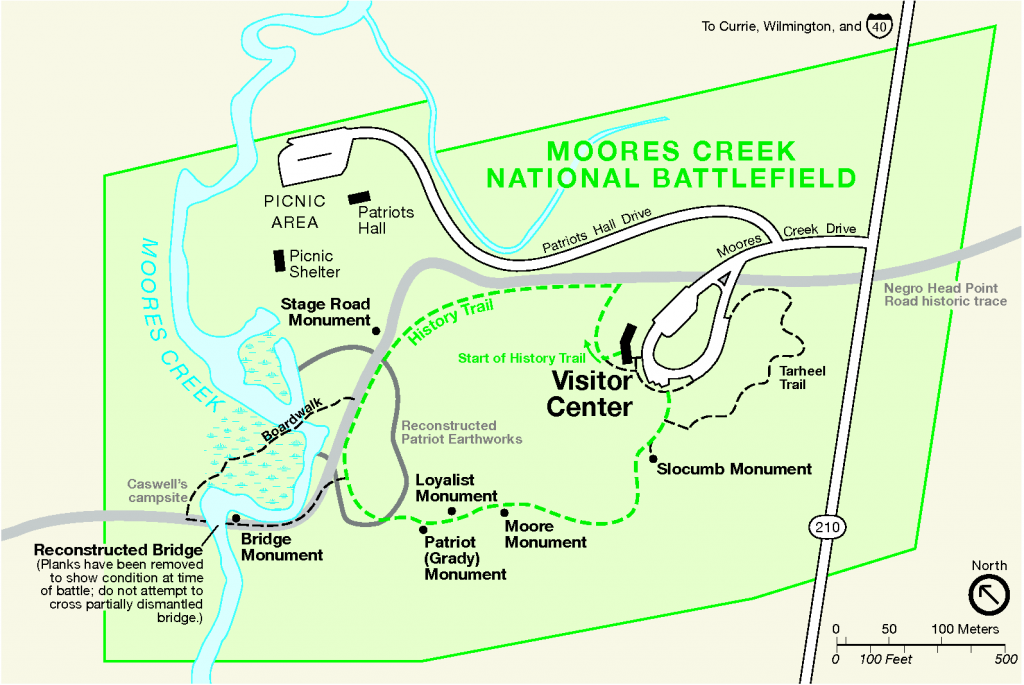
Moore’s Creek was one of the first southern battles of the American Revolution, taking place on February 27, 1776. It helped build a groundswell of support for the Revolution itself after a Patriot victory.
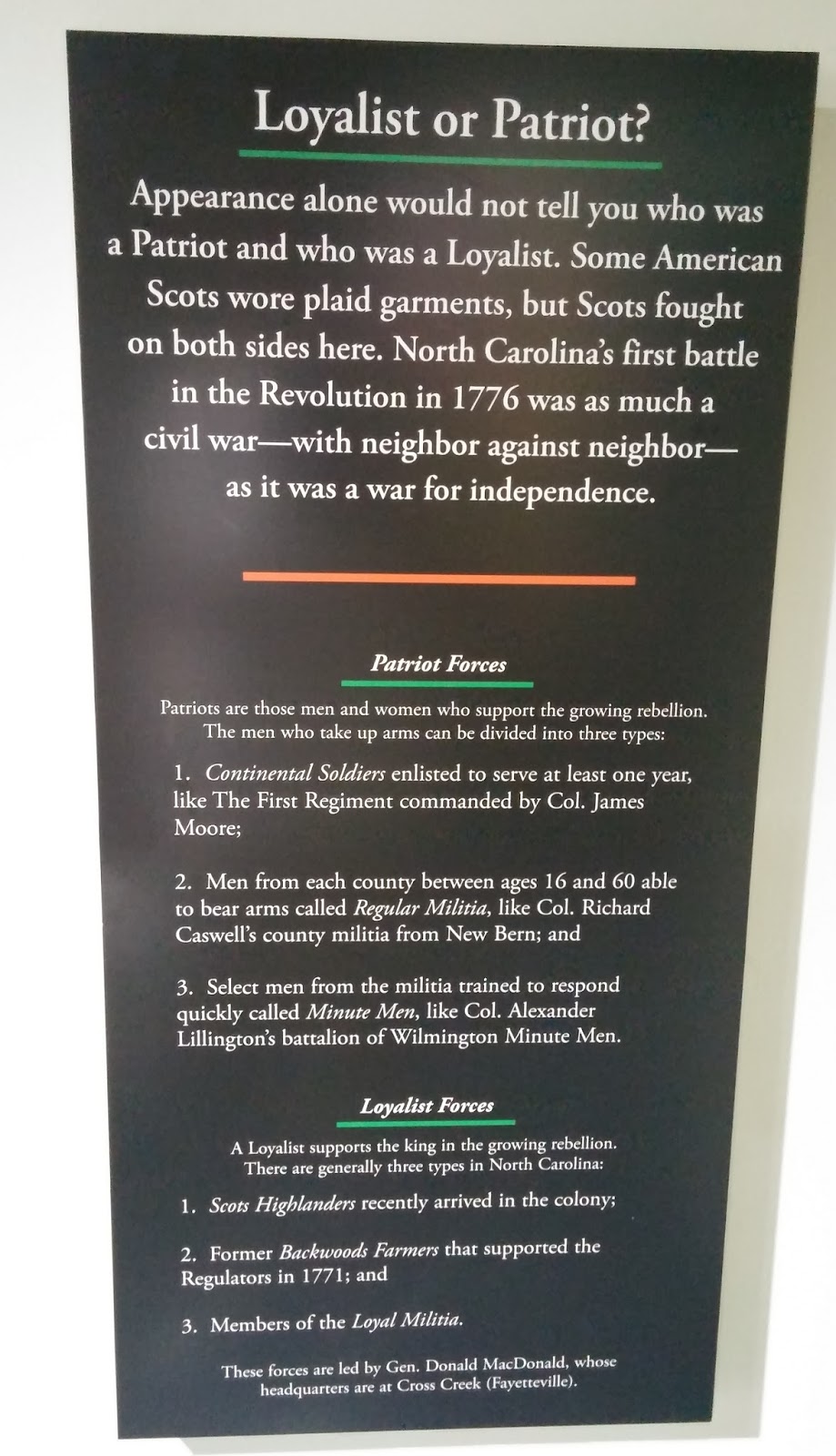
The basic strategy for the battle was a British plan to incite Loyalists in North Carolina to start counteracting a lot of the Patriot activities in the area. Before the Rev War, there was a group called the ‘Regulators’ who routinely made life hard for colonial government – demonstrating when there were tax hikes, refusing to pay tolls, etc. The local loyalist governor was trying to sway these men to his side.
He also received permission to start recruiting Loyalist Scots in the area. I honestly had no idea there was a large Scot population in NC, but they were definitely there. So he recruited Loyalist Highlanders to join his cause and together with the Regulators they made up the Loyalist contingent in NC.
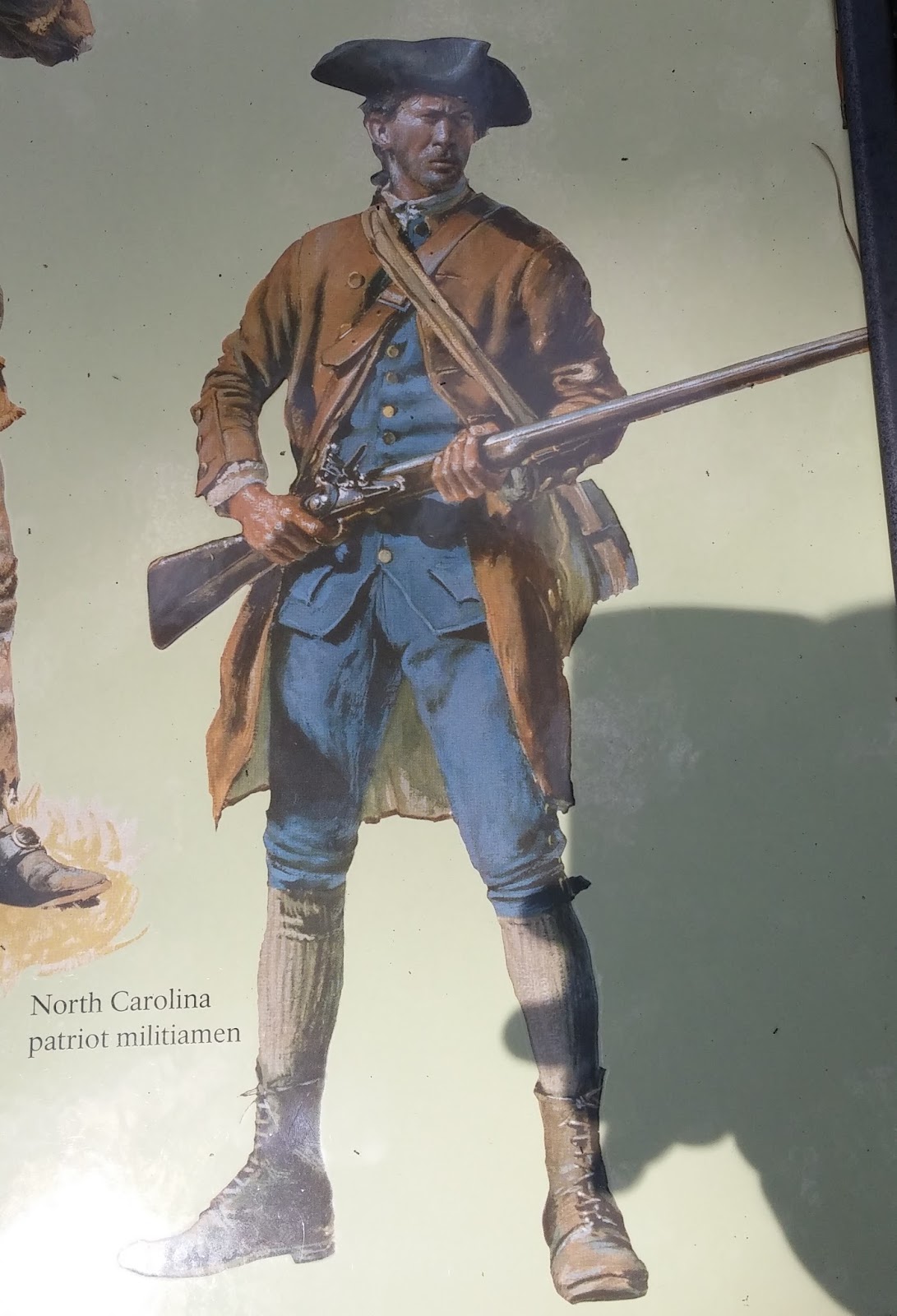
They were told to await the arrival of General Clinton with 2,000 men at the coast to subjugate the Carolinas. The Scots were happy to wait for the boats to arrive with Clinton’s men, but the Regulators wanted to move to the coast as soon as possible. Before desertions and illnesses, Brigadier General Donald MacDonald (yep!) began the march to the Wilmington and then Brunswick Town with around 1,500 men, mostly Scots.
Three different local Patriot units began to organize – the 1st North Carolina Regiment under Colonel James Moore, and local militias under Alexander Lillington and James Caswell. The three forces were in different towns so they had to march to meet each other.
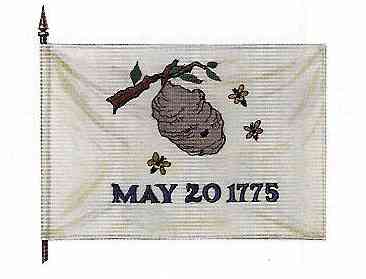
During this time there were a series of marches and blocking movements that basically led Loyalist forces over the Cape Fear River (the main body of water in the area) and towards Widow Moore’s Creek. At one point, MacDonald sent a letter to Moore telling him to lay down arms and surrender. Moore responded with his own letter, suggesting that MacDonald should be the one to surrender. Masterstroke.
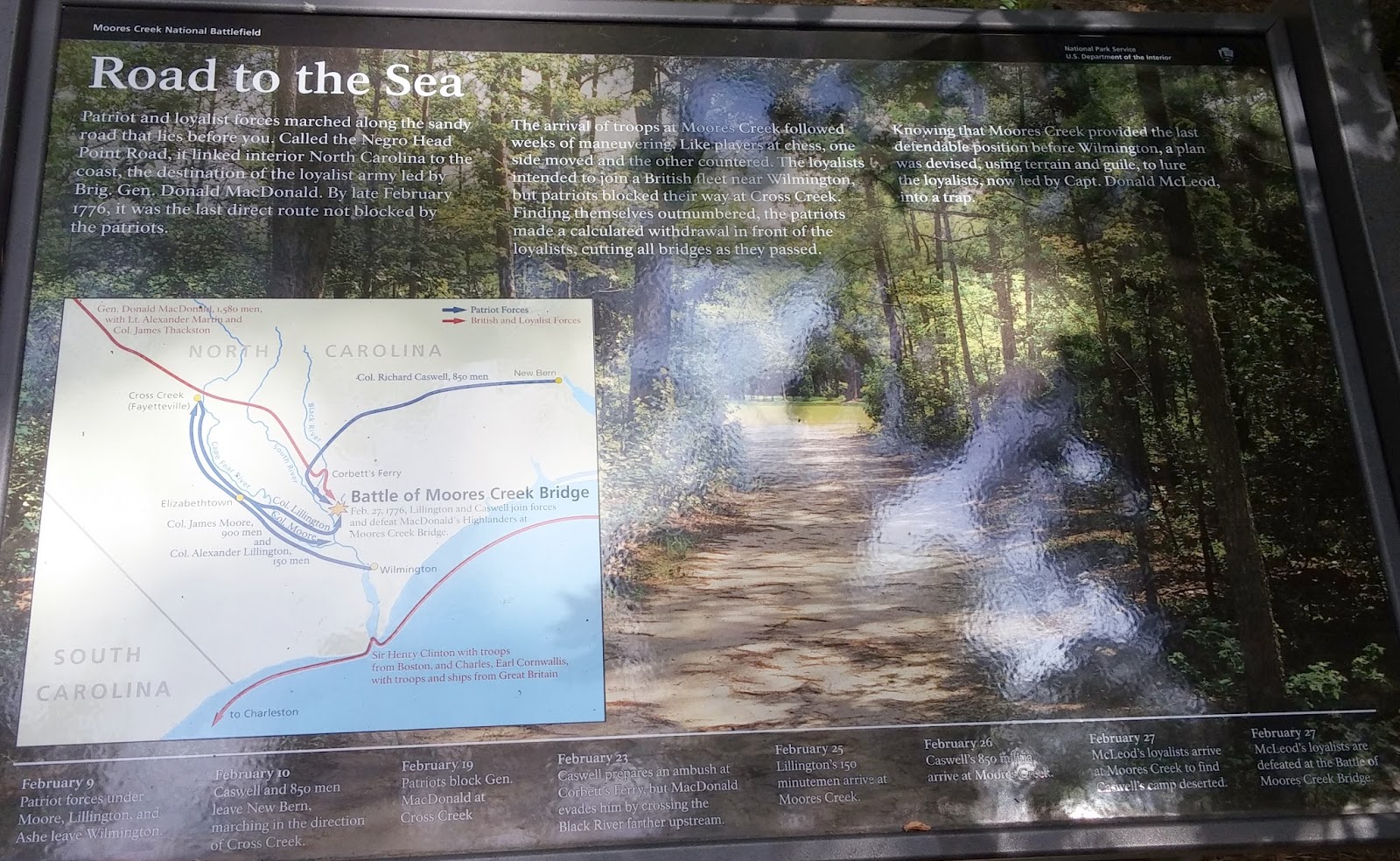
The Loyalists approached Moore’s Creek Bridge, stopping around six miles away at Colvin’s Creek. MacDonald had fallen ill, and Lt. Colonel Donald McLeod took over. The loyalist forces had only 500 muskets – in a force that may number 800 men.
Meanwhile, Patriot forces under Colonel Caswell reach Moore’s Creek Bridge and create an encampment on the west side of the creek, on the approach the Loyalists would take. The real earthworks are then dug on the east side of the creek by Caswell and Lillington’s men.
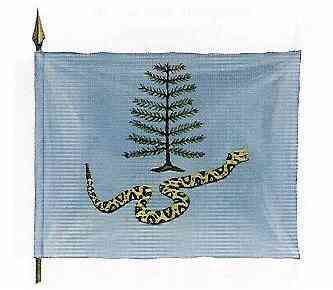
MacDonald sent his secretary to the false encampment with demands for surrender. While he’s reading the proclamation, the secretary, Hepburn, surveils the encampment and memorizes the position and number of men.
Loyalist Lt. Colonel McLeod, based on this intelligence, makes the decision to attack with his 800 men, mostly Highlanders. The swamps were soaked from rain and made the muddy march very hard on the men, with the march starting at 1 AM.
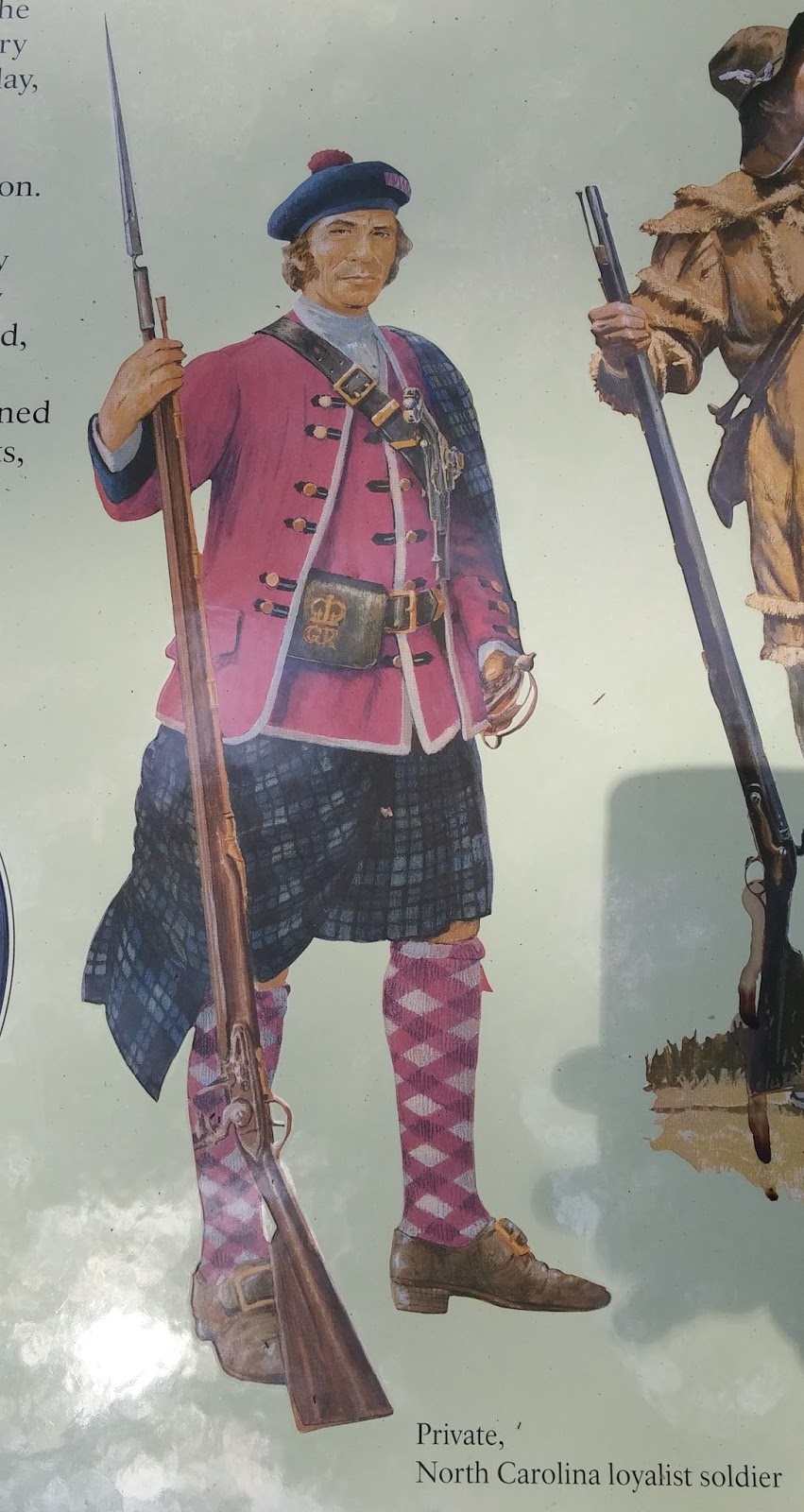
Patriot Colonel Caswell feared an attack, so he moved his men across the bridge and occupied the entrenchments with Colonel Lillington’s men. There were approximately 1,000 men in the position, and Colonel Moore’s men were on the way as well.
The Highlanders reached Caswell’s false encampment, finding fires still burning and tents still staked. They moved forward to toward the bridge, with the phrase KING GEORGE AND BROADSWORDS their inspiration.
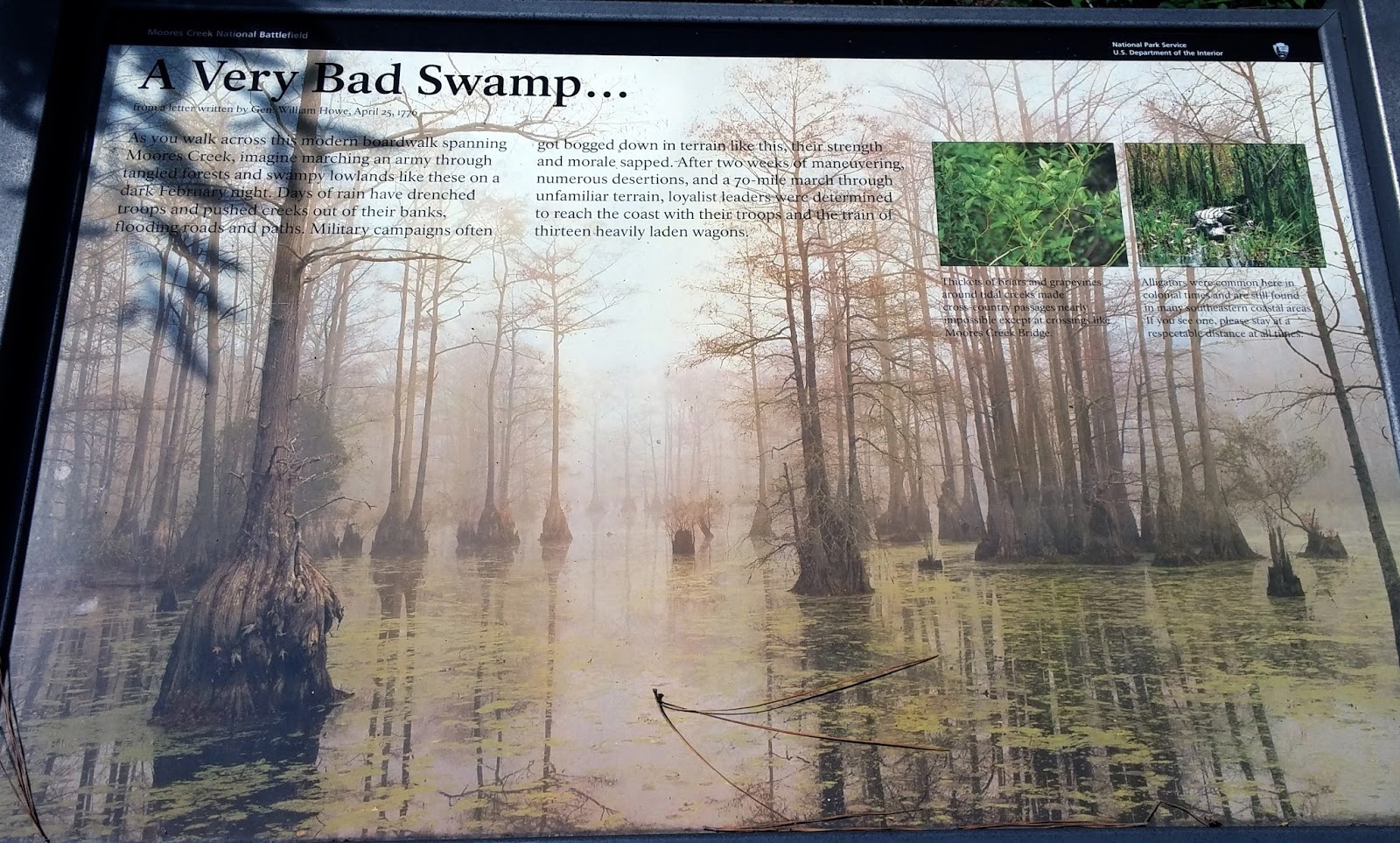
The Loyalists moved forward, to the bridge, which had been all but destroyed by the Patriots. They had removed all the walking planks, so that only the main bridge beams were left. They had then greased this with lard to make it slippery (lol!). The Highlanders challenged two pickets who had been left, stating they were ‘a friend to the king’.
They made it across, but were broken up and piecemeal. Colonel McLeod led a charge on the Patriot earthworks but it was never really in doubt. They approached thirty paces of the Patriots with their broadswords when the two Patriot field pieces, “Mother Covington” (a two pounder gun) and “her Daughter” (a swivel gun) opened up on them with ‘swan shots’, packs of musket balls rammed down the barrel of the gun and shot out.

Needless to say, the Loyalists were surprised to see these earthworks and this many Patriots. The battle was over within minutes, as Lt Colonel McLeod lay dead on the ground with reportedly nine musket balls and 24 swan shots in him. Thirty other Loyalists lay with him, and quite a few Loyalists drowned in the creek or in the swamps surrounding the earthworks.
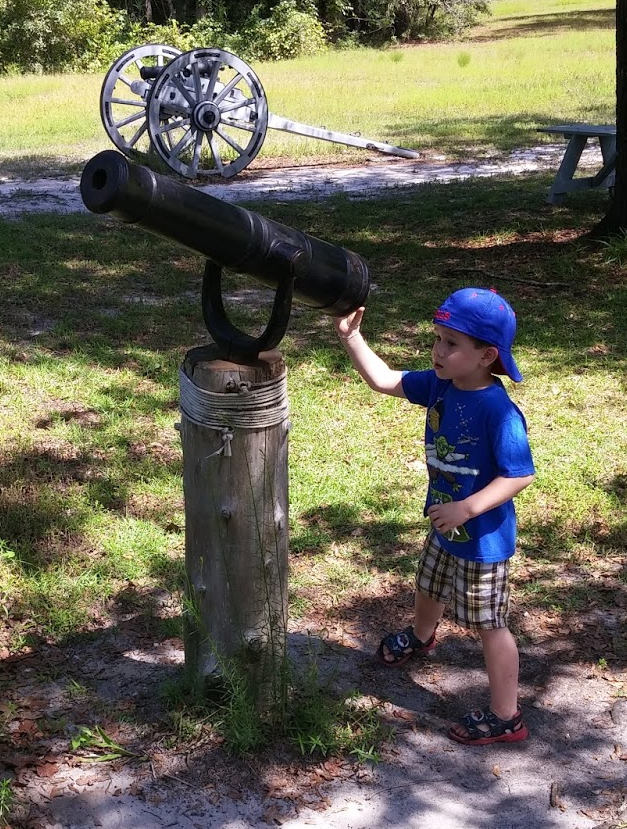
Many Loyalists took off as soon as the battle started. The Loyalist troops still in the false encampment opened fire, but took off not long after. The Loyalist encampment and Brigadier General Donald MacDonald were captured soon after the battle was ended. Over 800 men were captured and paroled when they took an oath to not fight again.


The Battle at Widow Moore’s Creek Bridge was entirely decisive, and perhaps the first decisive Patriot victory of the war. It was enough to keep the Loyalist and British forces out of the South for two more years. It ended the Loyalist efforts in the colony.
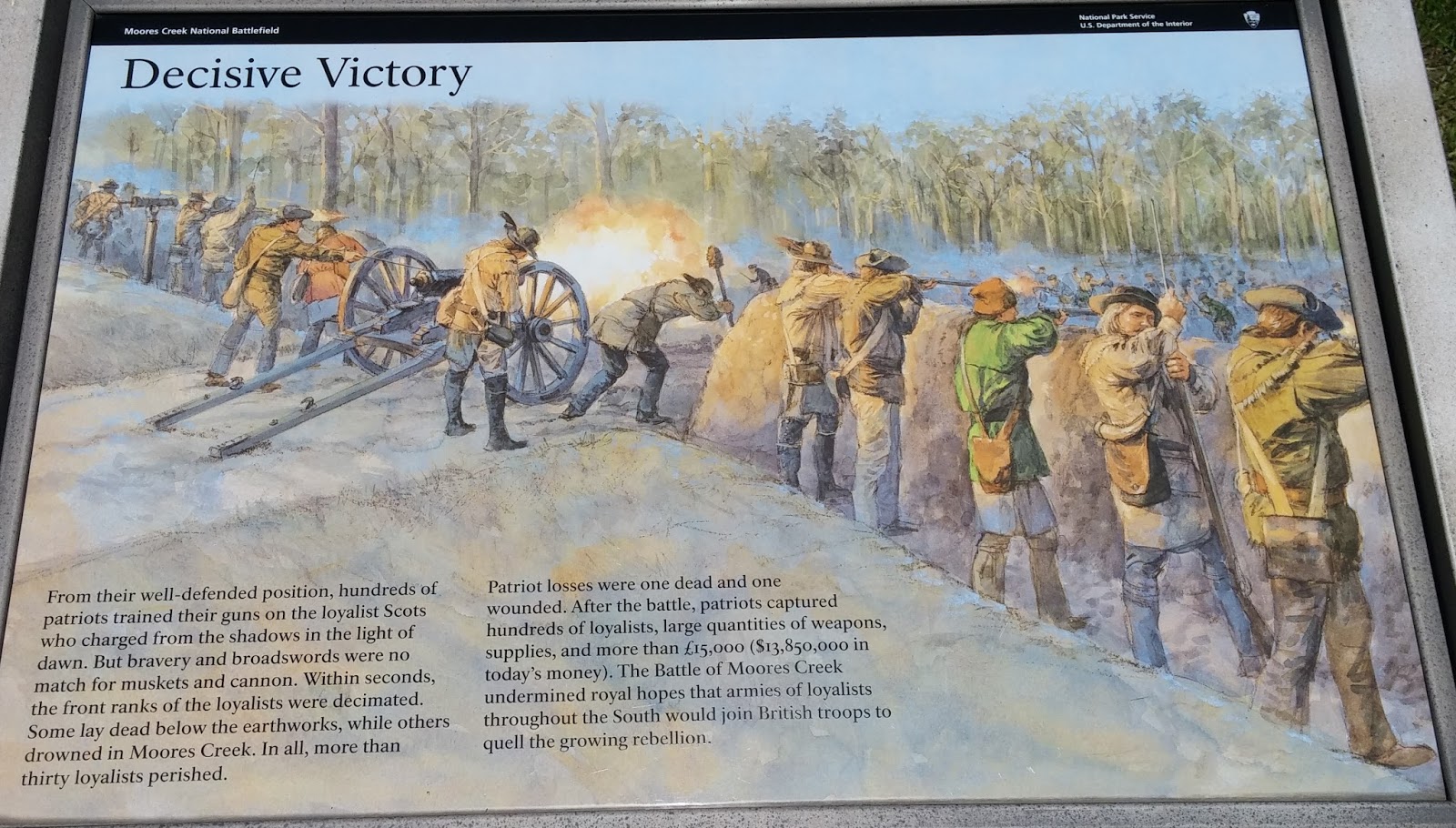
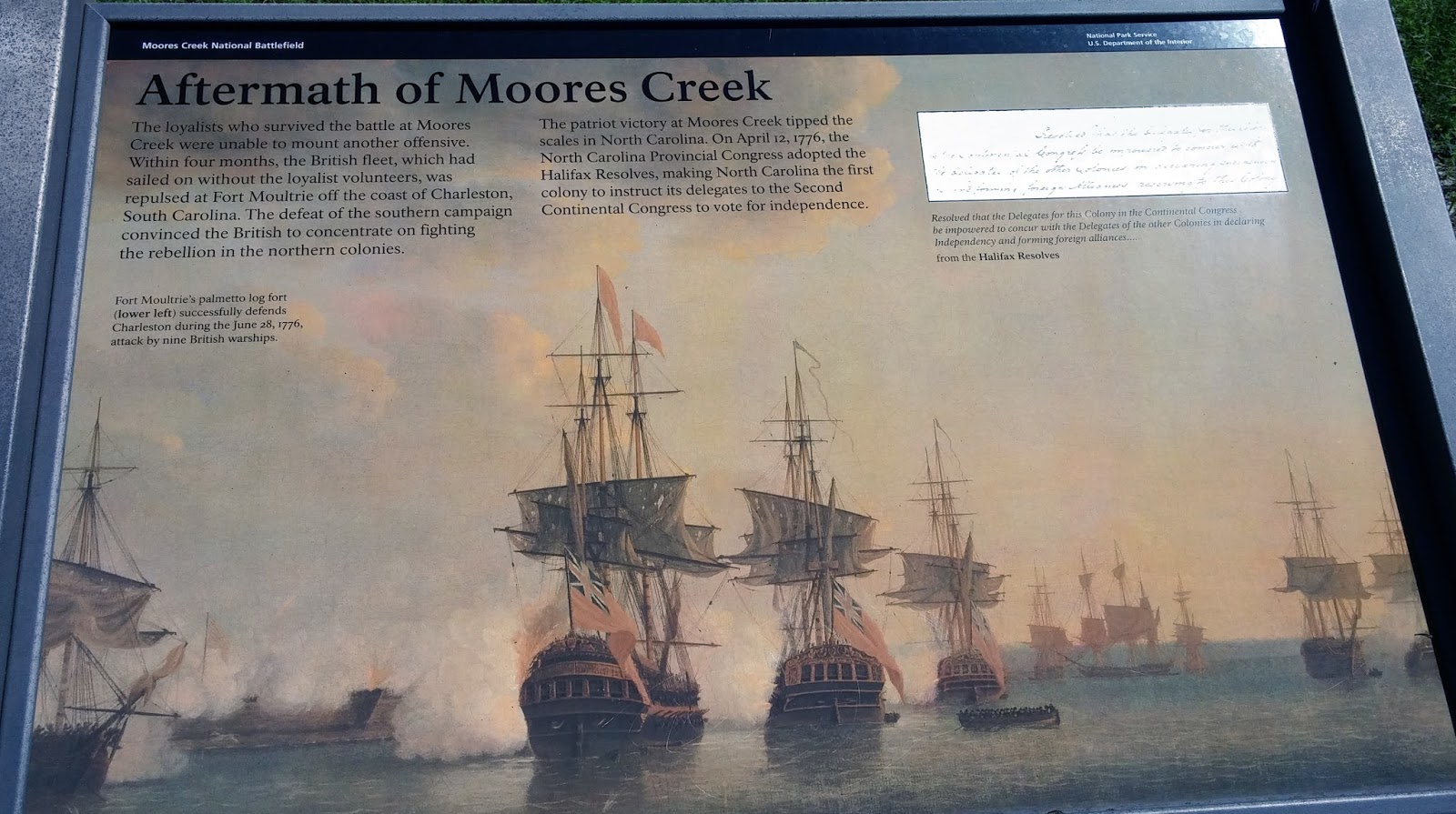
For some further reading:
Battle at Moore’s Creek – PowerPoint – https://www.nps.gov/mocr/learn/education/upload/Battle-of-Moores-Creek-Bridge.ppt
Redcoats on the Cape Fear – Book – https://www.amazon.com/Redcoats-Cape-Fear-Revolutionary-Southeastern/dp/0786469587/ref=sr_1_1?ie=UTF8&qid=1474385120&sr=8-1&keywords=revolutionary+war+cape+fear
The Battle of Moore’s Creek Bridge – Book – https://www.amazon.com/Battle-Moores-Creek-Bridge-ebook/dp/B00BFHV5YW/ref=sr_1_5?ie=UTF8&qid=1474385144&sr=8-5&keywords=moore%27s+creek
More photos:
